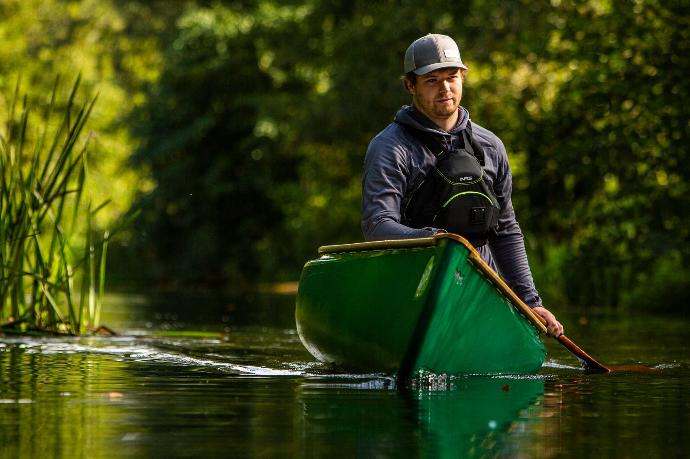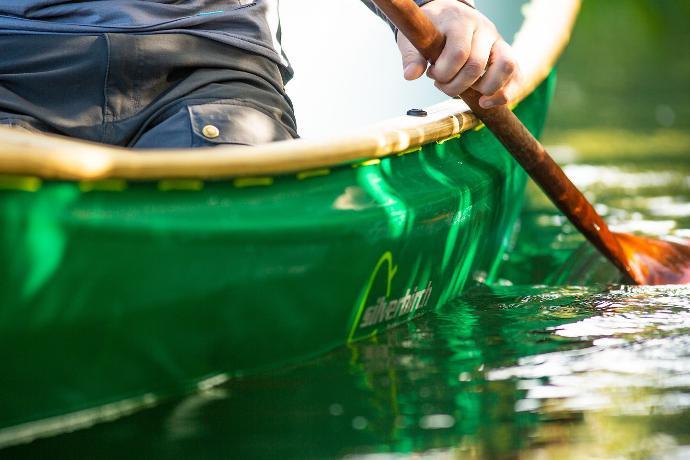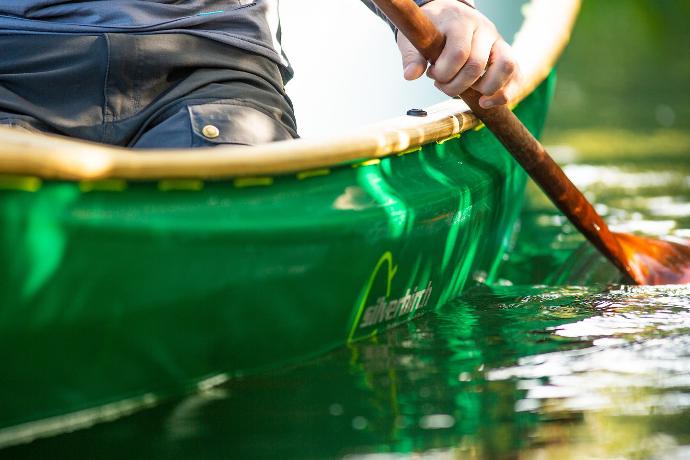When we’re going afloat, we’re generally expected to be aware of and accept what is involved and at all times take full responsibility for our own action and involvement – but what should we consider?
WHY FLOAT PLANNING?
If we dig down a little, we find pretty much everyone has some sort of float plan when taking to the water. These Float plans don’t have to be complex, and they can be in our head – especially for familiar trips and journeys with people we know in favourable conditions.
If our float-plans are informed by local knowledge and by a realistic assessment of our capabilities, resilience and resourcefulness, and we’re confident we can adapt in response to unforeseen developments, we may be good-to-go - winging it or otherwise.

In practice, our biggest challenge is often choosing a trip or journey that suits our aspirations, expectations and priorities. What can we realistically get from the our time on the water that we'll genuinely value? If we get these thoughts wrong, a trip or journey is unlikely to be a success even if everything goes to plan!
Including everyone in the group with questions of why, what, who and how minimises risks from misunderstandings and complacency. Who is confident of being self-reliant, or of being able to offer support to others? Who is only going based on trust that support will be an option?

IS THIS A GOOD TIME TO GO?
Forecasts don't have to be great. If we’re going for a familiar pootle on sheltered water in the midst of a long period of settled conditions, even a forecast of heavy rain might be ok for a fully-understood outing.
In less forgiving conditions, a big storm the night before can mean saturated ground and lowland rivers rising significantly even in light rain.
For those going out on open water, more significant concerns might be breezes and thunderstorms, but on big lakes, a storm the night before can lead to big swells even on the calmest of days.
Choosing a good time might depend on things we cannot pick up from a map. E.g. Local events which will mean other water users or parking issues, or local curiosities which lead to katabatic winds or sea breezes. Some factors, such as how comfortable we feel about conditions, may need local observation.
Before committing to anything, think PLOW. Prior Conditions (e.g. trends in river levels). Local Knowledge (guidebooks, online sources). Observations (conditions, including at any known hazards). Weather Forecasts (ideally from multiple sources).
ENSURING THINGS GO WELL
Up to a point, we may be quite happy with occasional, unexpected challenges as part and parcel of our canoeing. Our planning just needs to be good enough to ensure the challenges we face are ones we can handle.
If we’re confident that we all know what we’re doing, in familiar waters, we may just be comfortable with “just wing it” as a plan of action.
At the other extreme, we might want to review the level of experience and expertise each group member has got in a host of areas, from navigation and route finding to handling challenging conditions.

If we have decided we're OK “winging it” then we might be expecting to just deal with any misunderstandings and miscommunication “on the fly” – but if not, is everyone clear how the group, working together, will make any big decisions? What does that mean for everyone in the group during the trip or journey?
Ensuring things go well might also involve adapting to Regulations and Guidelines, or at least steps to support local communities, to demonstrate respect for other water users, to protect flora and fauna, and to get involved (contribute).

IF THINGS DON'T GO QUITE TO PLAN
Avoidance might be better than cure, but even with exemplary judgement and decision making, we can end up needing to get ourselves out of difficulty.
If we’re inexperienced and we’re alone, getting ourselves out of difficulty could mean looking after ourselves as a wild swimmer might, without using canoe-specific skills. Ultimately, that’s an option anyone might need.
If we're being cautious, we may value knowing the limitations of whatever skills we have got so that we are not finding out those limits (and perhaps getting into difficulties) at a time when an incident needs managing.
In many regions, skills training and incident management training will be available, including through instructors and coaches. Where practicable, this should develop a range of solutions, ideally using carefully prepared scenarios which include challenges that may be encountered in everyday canoeing.
Developing skills for handling incidents is often discussed as an ideal, and many will practise rescues and self-rescue in controlled environments. Practicing a little-and-often is commonly recommended for consolidation and to avoid skills-fade.
CHECKLISTS AND KEY QUESTIONS
As most of us have found out in one walk of life or another, the best plan in the world can get derailed by oversight or by circumstances. The first can’t ever be ruled out, but asking a few key questions at key times can help.
Group members might want to discuss:
| Communication Line of Sight Avoiding Incidents Positioning | Navigation Rescues First Aid Calling For Help |

At some point, if all goes well, we’ll return, connect with others and get on with the rest of our lives. If things don’t go to plan and we’re massively delayed then sooner or later, some of those we’ve left behind are likely to start wondering what’s happened – which is a good thing!
Routine check-ins might be over-the-top for a familiar, fair-weather pootle, but a good float plan might include arranging to check-in by a certain time. The gold-standard might be agreeing what should happen if a check-in hasn’t happened by a certain time.


Float Planning